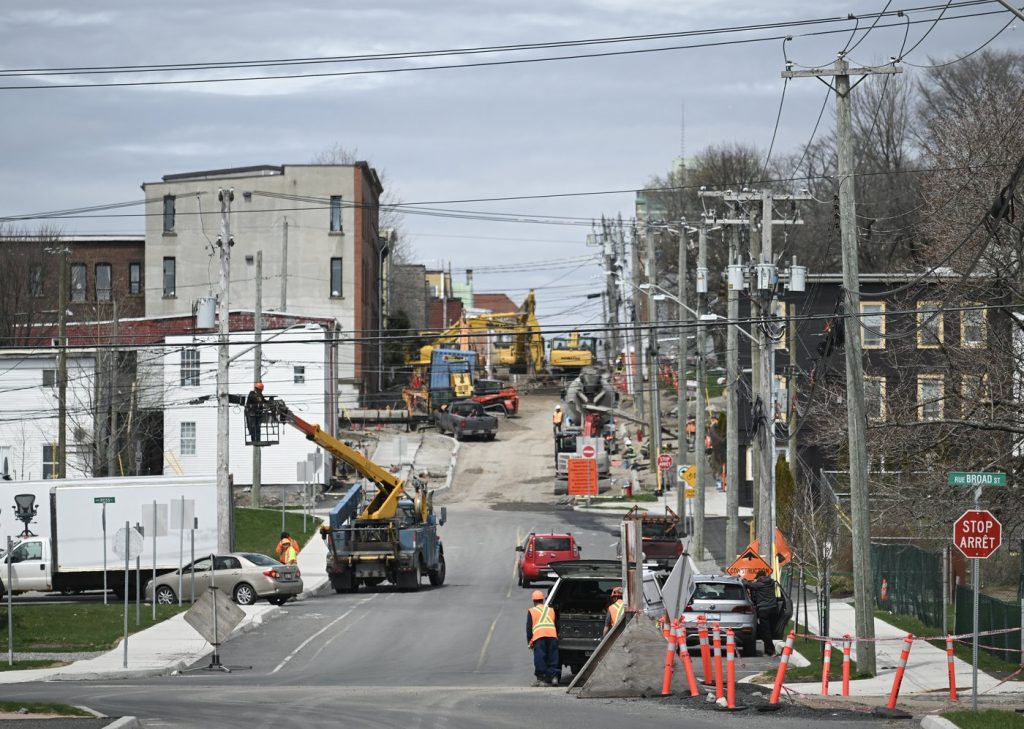TORONTO – A new survey indicates that most Canadian construction companies continue to grapple with a shortage of skilled labor. However, they are witnessing improved productivity and efficiency due to recent investments in technology.
KPMG in Canada’s third biennial survey on digital maturity and tech adoption in the construction sector reveals a transformative shift. Nearly 80 percent of the 265 surveyed construction companies reported that their procurement processes are evolving to foster innovation and digital adoption.
The survey, conducted from March 18 to April 4 in collaboration with the Canadian Construction Association, highlights the urgent need for continued tech investment within the industry, especially as labor shortages become more pronounced. Experts have consistently raised concerns about the dual challenges the construction sector faces: the need to replace an aging workforce while simultaneously responding to the increasing demand for housing in Canada.
According to the Canadian Home Builders’ Association, approximately 22 percent of residential construction workers are expected to retire in the coming decade. Furthermore, the association estimates that Canada will require over one million additional residential construction workers to meet the Canada Mortgage and Housing Corporation’s target of increasing home construction by 3.5 million units by 2030 to restore affordability.
Nearly three-quarters of construction leaders anticipate that it will become “increasingly difficult” to satisfy demand over the next five to ten years, particularly as retirements outpace recruitment, as indicated by the survey released on Wednesday.
Jordan Thomson, KPMG in Canada’s national sector leader for building and construction, remarked, “The industry is well aware of their labor conundrum. The pressure is intensifying on the construction industry to do far more with less.”
The survey found that 78 percent of companies are currently experiencing a shortage of skilled workers. While this percentage remains “incredibly high,” it has decreased from 90 percent in 2023. Additionally, 70 percent of respondents noted that the labor crunch is impeding their ability to bid on projects and meet deadlines, down from 86 percent in 2023.
These reductions coincide with a growing reliance on digital technology to bridge existing gaps. Approximately 81 percent of companies reported improved labor productivity and efficiency thanks to recent technological investments, with 56 percent prioritizing technologies that support a demand-driven supply chain.
Furthermore, 53 percent of companies are focusing on implementing artificial intelligence (AI) and AI-driven software in their operations. Impressively, 90 percent recognize that better tools, such as AI and analytics, can enhance efficiency and labor effectiveness, an increase from 86 percent in the previous year.
Among the technologies being adopted in the industry are drones for site surveys, robotic bricklaying, and various forms of automation. There are also significant advancements in modular or prefabrication construction, where buildings are manufactured in controlled factory settings and subsequently transported to construction sites for assembly.
Prime Minister Mark Carney has emphasized the importance of scaling up prefabricated home construction within his housing strategy, committing $26 billion in financing to prefabricated home builders to expedite construction timelines by as much as 50 percent.
Rodrigue Gilbert, president of the Canadian Construction Association, acknowledged the positive signs of evolving procurement practices but emphasized that more work is required. “Too often, the system prioritizes lowest price over long-term value, which prohibits investment in innovation,” Gilbert stated. He underscored the need for government reforms in procurement to encourage collaboration, fair risk-sharing, and to instill the confidence companies need to invest and expand in a modern and productive construction sector.
This summary presents a comprehensive overview of the challenges and advancements in Canada's construction industry as surveyed by KPMG in Canada, revealing both the pressing issues and the innovative responses from labor shortages and technological adoption.











